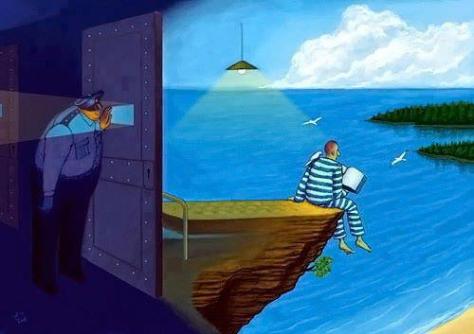In 2014, the British government tried to ban prisoners receiving books sent to them through the mail. Their declared reason for doing this was to prevent drugs being smuggled in.
After vigorous protests, the ban was overturned in the High Court.
http://www.bbc.co.uk/news/uk-30344867
This makes sense, for one only has to look at the illiteracy and numeracy rates of those imprisoned. Half of the male and three-quarters of female prisoners have no qualifications at all, and 67% of them were unemployed at the time of their offending. There has to be a link between their breaking the law and the opportunities that they’re denied through a lack of education.
Poor self-image doesn’t help either, so for those wanting to better themselves and turn their lives around through the education programmes available inside, having access to books is vital. Prison libraries are poorly funded, and wouldn’t necessarily stock the much-needed books that a prisoner needs to transform their thinking.
http://www.theguardian.com/society/joepublic/2010/feb/03/prison-education-training-low-skills
Restricting access to the latest and most pertinent books would have been petty-minded censorship. As Joseph Brodsky, poet laureate of the United States in the 1990s, said: “There are worse crimes than burning books. One of them is not reading them.”
